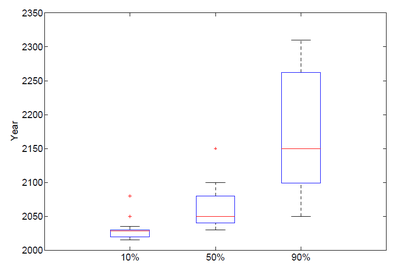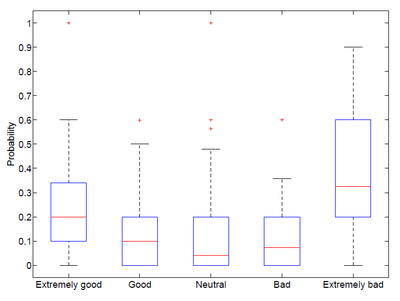April 21, 2011
When will we get our robot overlords?
As some readers may recall, we had a conference this January about intelligence, and in particular the future of machine intelligence. We did a quick survey among participants about their estimates of when and how human-level machine intelligence would be developed. Now we can announce the results: Sandberg, A. and Bostrom, N. (2011): Machine Intelligence Survey, Technical Report #2011‐1, Future of Humanity Institute, Oxford University.
To sum up the conclusions:
The median estimate of when there will be 50% chance of human level machine intelligence was 2050.
People estimated 10% chance of AI in 2028, and 90% chance in 2150.
The most likely originators of machine intelligence were industry, academia or military/government.
The outcome was bimodal: participants often gave significant probability to very good *and* very bad outcomes.
Participants were fairly evenly distributed between AI being biologically inspired or completely artificial.
Since this happened before the Watson Jeopardy contest, we asked what probability the participants gave for a machine win. The median answer was 64.5%, a fairly mild confidence in Watson.
There were no real group differences between philosophers, AI people and other academics in their answers.
All in all, a small study of a self selected group, so it doesn't prove anything in particular. But it fits in with earlier studies like Ben Goertzel, Seth Baum, Ted Goertzel, How Long Till Human-Level AI? and Bruce Klein, When will AI surpass human-level intelligence? - people who tend to answer this kind of surveys seem to have a fairly similar mental model.
Posted by Anders3 at April 21, 2011 10:15 PM
